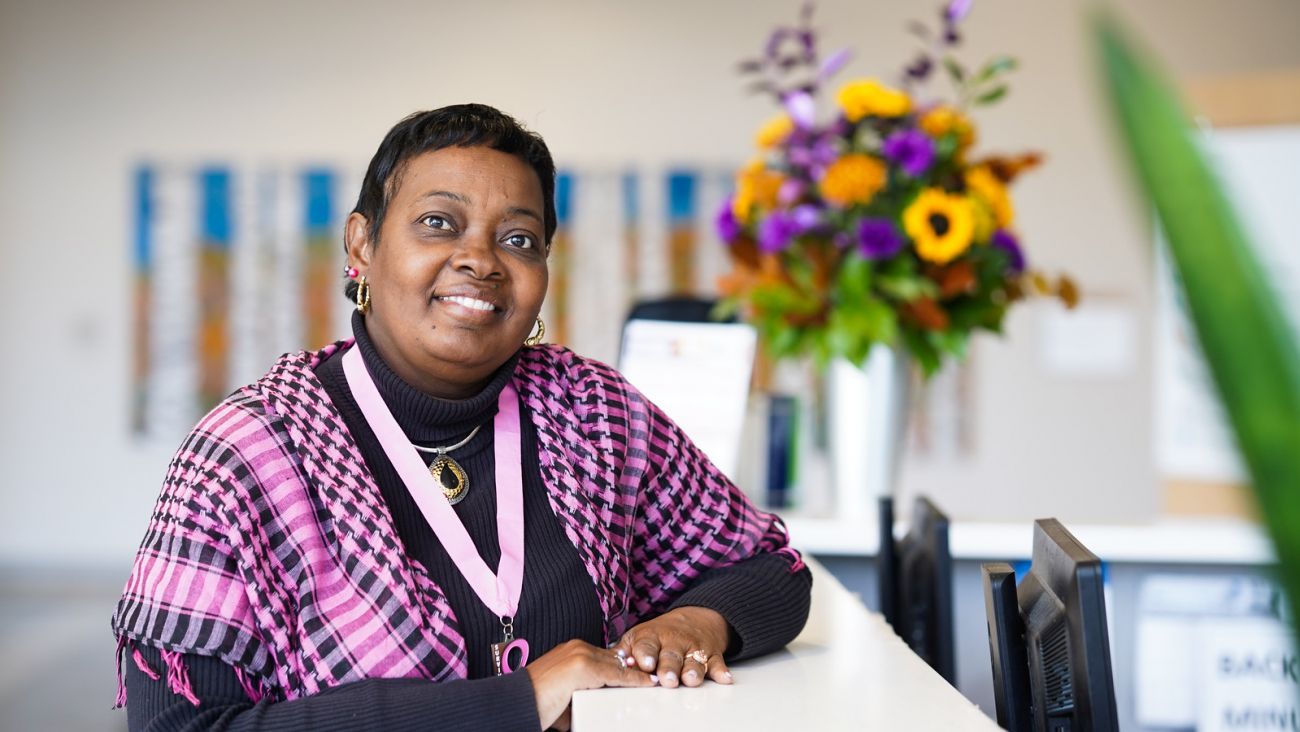In her five decades of life, breast cancer survivor Annette Colden has experienced the loss of several family members to cancer.
“I lost my father and three brothers to prostate cancer, and I lost my sister to breast cancer,” Annette explains. “My sister was initially told that she just had lumpy breasts. When she was finally properly diagnosed, she had stage 4 breast cancer. In her last days of life, she made me promise to get mammograms and health screenings on a regular basis.”
It took some effort, but Annette kept that promise. “I was in my late 30s when my sister passed away. At that time, it was much more difficult for a woman to obtain a mammogram before age 40. Even after genetic testing confirmed that I had a BRCA mutation, I was told I was too young for a mammogram. I had to fight for three years before I was finally approved for one,” Annette recalls. “That was nearly 20 years ago. Fortunately, we’ve come a long way since then.”
Mammography at Roswell Park
It matters where you get your mammogram and it matters who reads your mammogram. We have a dedicated team of technologists and radiologists who specialize in the detection of breast cancer.
Annette finally got her first mammogram at age 40. “My first two mammograms showed no issues. On my third mammogram, there was a tiny spot, but I was told by the doctor who read it that there were no problems,” Annette says. “Looking back, I should’ve questioned him on that. I didn’t know this when I first faced cancer, but recent research has uncovered links between some prostate cancers, ovarian cancers and breast cancers.”
The next year, Annette’s mammogram showed the same tiny spot. This time, the doctor said it looked suspicious. “I told him it looked exactly the same as the spot from last year. I had him put one film right on top of the other, and the spot on both was exactly the same size. I lived with that cancer in me for a whole year when I should have been getting treatment,” Annette recalls. “Thankfully, during that year, my cancer did not spread.”
“I have always called my life a journey with God, but this experience showed me again that He was with me all the way,” she says. “I happened to meet a woman one day who was wearing a Roswell Park employee badge. I spoke with her and she gave me her card. I put the card away and didn't think about it for a year. When the spot showed on my mammogram the second time, I asked my doctor for a referral to Roswell Park, but he would not give it to me. He wanted me to have the biopsies done at his facility. Then I remembered the woman from Roswell Park and thought maybe she could help. I looked everywhere for her card, but I could not find it. I have a saying: ‘Let go, let God.’ So that’s what I did. I put it in God’s hands. A few days later, I reached into my purse for a stick of gum and there was that card.”
Annette sought treatment at Roswell Park.
Two lumpectomies confirmed that I had stage 0 breast cancer (also called carcinoma in situ), meaning the cancer cells had not traveled at all from their initial location. But my Roswell doctor also told me that the type of cancer cell they found was aggressive. She suggested I have a mastectomy and breast reconstruction. I felt her care and compassion and I knew that this was the doctor who was going to save my life.
Paying it Forward
Now cancer-free for 11 years, Annette is healthy, happy and paying it forward. “Early detection and persistence saved my life,” Annette says. “This experience made me a more humble, caring, new person.”
As a volunteer with the Witness Project of Buffalo and Niagara at Roswell Park, Annette has also witnessed the power of sisterhood, community, education and faith to fight cancer and save lives.
The Buffalo Niagara Witness Project is part of an innovative nationwide program that engages and educates women — particularly those in medically underserved communities — about the benefits of early detection of breast and cervical cancer. The Witness Project provides community-based, free programming to help navigate women to needed health services and screenings.
“We reach out to women at their churches, beauty salons and community events to educate them and help them obtain proper screenings and healthcare,” Annette explains. This is especially important in the African-American community since African-American women are more likely to be diagnosed with breast cancer in the later stages and to develop more aggressive types of breast cancer at younger ages than white women.
In addition to serving as a Witness Project volunteer for the last 10 years, Annette volunteers in the Roswell Park Gift Shop and has started her own breast cancer support group, called We Are One. “I educate women about cancer, help them schedule and obtain transportation for mammograms and screening, accompany them to their doctor appointments, and talk to them — day or night, whenever they are afraid or have questions.”
“Cancer is a demon,” Annette says, “so we need to fight it with everything we have, through faith and action, and by taking care of ourselves and each other.”
For more information about the National Witness Project at Roswell Park, call 716-845-3383.
Editor’s Note: Cancer patient outcomes and experiences may vary, even for those with the same type of cancer. An individual patient’s story should not be used as a prediction of how another patient will respond to treatment. Roswell Park is transparent about the survival rates of our patients as compared to national standards, and provides this information, when available, within the cancer type sections of this website.
